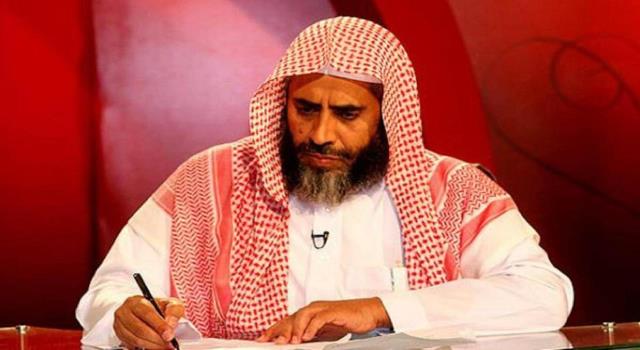
Awad al-Qarni had a drug poisoning, accusing officials in al-Hayer prison, south of the capital Riyadh, of deliberately giving him the wrong dose, human rights and media sources said.
The sources added that Sheikh al-Qarni was transferred to the hospital, the end of last October; because of giving him a wrong drug, and after the deterioration of his health.
This is not the first time the Sheikh has suffered this health deterioration since his arrest in September 2017.
The sources pointed out that al-Qarni, detained since September 2017, is still in al-Hayer hospital.
She stressed that deliberately giving Al-Qarni a wrong medication dose in Al-Hayer prison “should not pass without accountability.”
It considered that the arrest of “al-Qarni” originally “a major crime”; how all these violations against him and the rest of the prisoners of opinion?
The latest developments in the case “al-Qarni” was announced by “Prisoners of Conscience” tweeter account earlier that the court postponed the hearing on November 20, without giving any reason.
Since September 2017, the Saudi authorities have been detaining dozens of preachers, activists, and activists, amid demands from international and local human rights groups and organizations for their release.
The Saudi authorities charge the detainees with “breaking the guardian”, “violating friendly countries” (referring to criticism of some of the detainees to the UAE), “communicating with foreign parties”, “seeking to provoke strife and destabilizing state security”, and “funding parties”. Terrorist outside the kingdom, “and” belonging to the Muslim Brotherhood.”
In contrast, the detainees deny the validity of these charges, and say that their arrest came politically because of “violating the opinion of the ruling authority.”
Human rights sources have revealed some of the abuses suffered by detainees in the Kingdom, after activists called for blogging by marking the truth of the Kingdom’s prisons in order to communicate these facts to the public and international human rights organizations concerned.
Regarding prison hospitals, the sources said that they “neglect the basic disease cases and only provide mild painkillers.” We replied from a former detainee that he waited about a year to treat caries and pain in a spinal nerve, and another dental filling was installed after a long wait and fell a day later. It is fixed for him.”
Sources stressed that “the provision of narcotic drugs to detainees or mixing water with it is what affected the health and mental situation of many.. Some of them forced to sign confessions on charges not committed under the influence of that drug.”
In less than two years, the Kingdom has seen the arrest of hundreds of activists and rights activists, who apparently tried to express their opposition to the changes taking place in the country amid human rights demands to reveal their fate and provide them with justice.
These detainees were subjected to the most severe physical and moral violations, including torture, solitary confinement, and the prevention of their family members from traveling, while about five of them were killed in prisons, and others were released after suffering from mental illness because of the severity of torture, amid severe silence by the authorities.